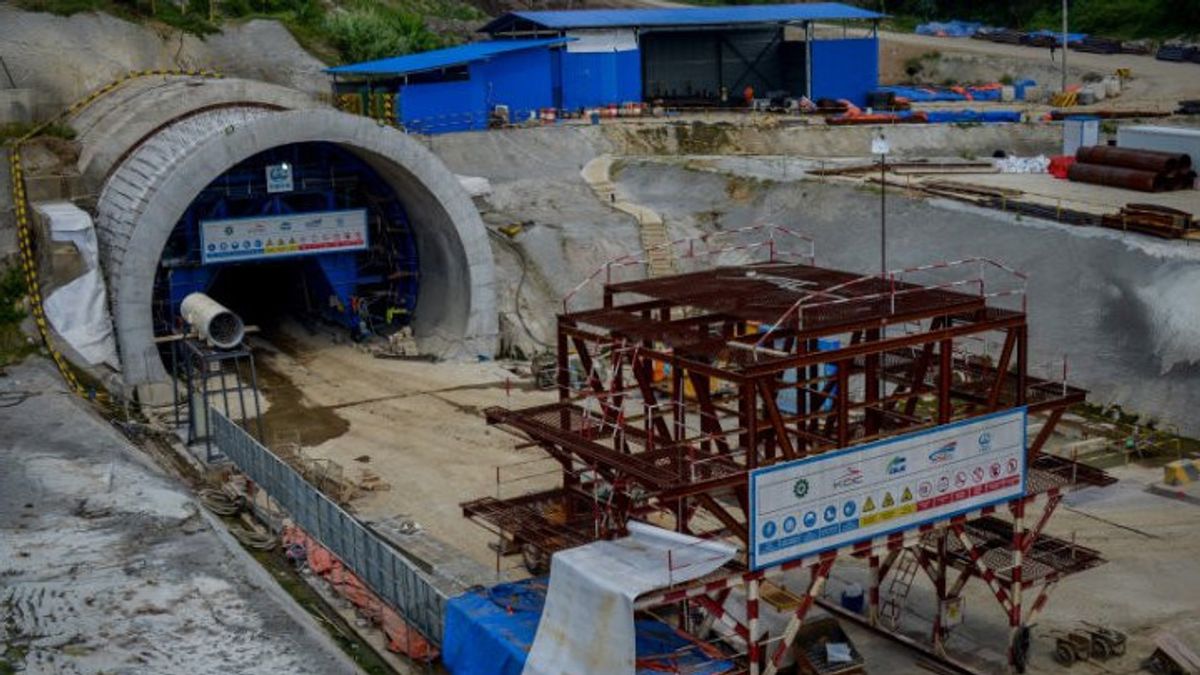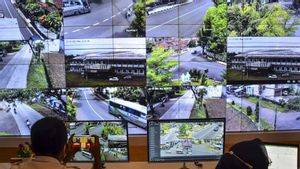JAKARTA - The construction of the Jakarta-Bandung high-speed rail project, which is currently still in the stage of completion, is considered to be infrastructure, which spurs business expansion in the region and has an impact on the national economy.
Business expansion by business actors from the capital city area to the buffer city will be more massive following the ease of access to the Jakarta-Bandung high-speed rail transportation.
"By only taking about 30 minutes of travel time, the availability of this mode of transportation can increase efficiency and open up opportunities for entrepreneurs in Jakarta to expand their business in other buffer zones," said Professor of the Faculty of Economics, Padjadjaran University Ina Primiana, quoted from Antara, Tuesday 26 October.
He explained that business expansion opportunities are not only open to the cities of Bandung and Jakarta, but also to areas around the station stops, especially in Karawang. Moreover, Karawang has been one of the manufacturing centers in the country.
"Investors will certainly invest in West Java because there are industrial area facilities. So, before this high-speed train is built, West Java must improve to build a number of industrial areas in the surrounding area, so that the areas that are passed will also develop," he said.
The Jakarta-Bandung high-speed train passes through four stations, namely Halim Station in Jakarta, Karawang Station, Hub Station in Padalarang, and Tegalluar Station, Bandung.
In the long term, this will encourage an even distribution of business centers from those that have been concentrated in Jakarta to spread to buffer areas such as Karawang and Bandung.
In addition, according to him, the West Java high-speed train will also support the national economy. In fact, West Java Province has always been ranked first nationally in a row from the fourth quarter of 2020 to the second quarter of 2021 as a region with very fast development.
"With the construction of this high-speed rail infrastructure, it will increase regional connectivity, which has a long-term economic impact," he said.
Previously, the Corporate Secretary of PT Kereta Cepat Indonesia China (KCIC) Mirza Soraya said the construction of the Jakarta-Bandung high-speed rail (KCJB) project had reached 79 percent and KCIC continued to make various efforts so that the operational target of KCJB at the end of 2022 could be realized.
He said that currently KCIC and a consortium of contractors are focusing on accelerating the construction of 237 construction points comprehensively.
He acknowledged that the COVID-19 pandemic that has hit the world since 2020 has hampered the KCJB development process.
"The pandemic has had quite an impact on the KCJB development process. For this reason, our focus is now on accelerating development," he said.
The English, Chinese, Japanese, Arabic, and French versions are automatically generated by the AI. So there may still be inaccuracies in translating, please always see Indonesian as our main language. (system supported by DigitalSiber.id)













